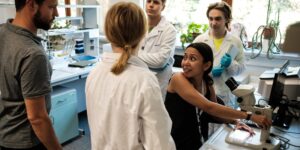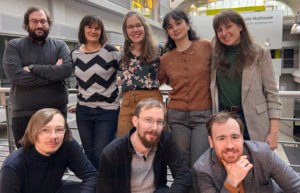EPICUR, as part of the broader European University Alliances initiative spearheaded by the European Commission, embodies a vision aimed at transforming higher education across Europe. These alliances bring together research-intensive universities to foster deeper collaboration in teaching, research, and innovation.
EPICUR aims to advance research and innovation across borders and disciplines, empowering early career researchers (ECRs) to collaborate internationally, tackle societal challenges, and build skills for diverse career paths. Through key initiatives like EPICUR-Research (2021–2024) and EPICUR SHAPE-IT (2022–2026), the alliance fosters interdisciplinary collaboration and integrates cutting-edge scientific discoveries into educational programmes.
This approach equips students and researchers with the tools to navigate a rapidly evolving world, enhances education quality, and promotes critical thinking and innovation. EPICUR also prepares academics for success within and beyond academia by emphasizing productivity, societal impact and collaborative research.
To address these emerging challenges, EPICUR is committed to providing enhanced training, networking and intersectoral exchange opportunities for current and future researchers by the establishment of the EPICUR Hubs, set to launch in April 2025. The Hubs have been developed based on successful formats and offerings tested during the first phase of EPICUR Education and in the context of EPICUR-Research, with continuous input from the Early Career Researchers Board and a dedicated Hubs expert group.
In addition, EPICUR fosters joint research and teaching collaboration through the EPICUR Seed Funding Scheme.




